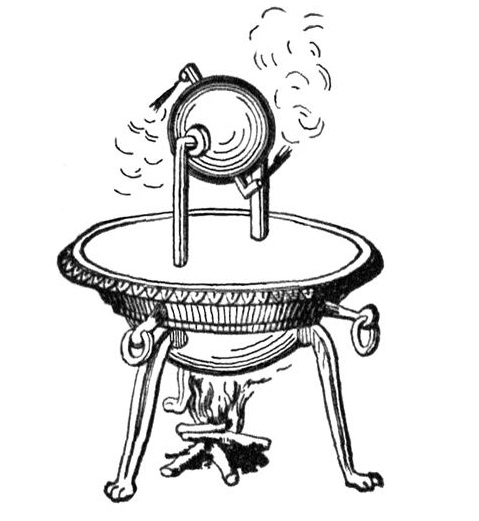Part One
In the South China Sea, for sometime now, the CCP have been ever so slowly establishing de facto control. With maritime vessels, island claims, the raising of shoals – then the establishment of bases, then the fortification and armament of those bases, and so forth; until now we see the South China Sea is subject to Chinese interests and compels nearby countries to accommodate that fact.
The trick had been to make these gains so slow and so incremental, that anything more serious than grumbling about the latest encroachment seemed uncalled for and not worth any diplomatic incident. It would be ‘making a mountain of a molehill.’ Some people who have been observing this phenomena call it ‘The Salami Method;’ meaning that so long as each claim is the thinnest slice of meat – one can eventually accumulate and obtain the whole Salami, without ever triggering a substantial backlash.
That this situation parallels The Right’s plight in the West (and has for a very long time) was not lost on me. The endless thieving of a minute kind: some single word you can no longer say, some small change in your behaviour or new tax to fund some new initiative. Some taboo nibbled at its edges in television or pornography. Always things that make one seem neurotic and belligerent if he objects to it, and make appeasement seem only the tiniest stain on your honour. But other than to lament this phenomenon, I had nothing constructive to say, and so said nothing.
But I have encountered a remedy, and am a little embarrassed to be this late in coming. The way to counter the enemy’s incremental approach is not to attack his increments per se, (since it only draws ridicule) but rather to make incremental gains of our own – such that the wins and losses cancel each other out and net (at the very least) a stalemate. In a normal world this tit-for-tat would be called the typical squabbles of an otherwise functioning nation. But the world has not been normal for a long time.
Most of ‘The Right’ are ‘Conservatives’ who, true to their name, are accustomed to defense, resistance, and self-preservation. They are the majority because all it takes to be a Conservative is to stick to what you’ve always done. It is a lethargic but easily deployed defense. By resisting all change, it ensures the more robust, genuinely healthy changes become established norms while the hasty mistakes wither and do not take hold.1
When the world was materially poorer and over 70% rural this arrangement worked well enough; there was sufficient inertia to counteract Change’s momentum. But in the modern era, Change has been given a great deal more energy. The Conservative today sometimes keeps, but he rarely gains. His opponents are always safe to retreat to their own territory, recover, recruit, and attack again tomorrow. To make advances on the battlefield then, the Conservative must allow himself to become offensive.
Lefties will try to tell you that – just as ‘Radical’ is left of ‘Liberal’ – ‘Reactionary’ is further right of ‘Conservative;’ but that is word-trickery. Never use your enemy’s definitions, lest you define yourself as the enemy.
‘Reactionary’ is a slur. It implies you haven’t done any thinking or soul-searching. It implies you are, in fact, a dead frog someone has applied electrodes to, and that you are grasping for things from the past out of dumb impulse rather than intellect or reason.
‘Radical’ comes from ‘radix’ meaning ‘the root.’ A radical leftist ‘attacks the root of the problem.’ To be the comparative thing on the Right then is not to be ‘Reactionary’ (to Leftist attacks)2 but to be a Fundamentalist. The ‘fundamentum’ is ‘the base, the beginning, the ground-work’. A fundamentalist works from the foundation; outwards and upwards.
In other words, before you can take offensive measures – to start slicing that salami – you have to study the ground you are fighting for. You have to dig down and find the bedrock. The Radical destroys everything because he intends to replace it all; but he cannot destroy the ground underneath his feet, and he cannot tunnel and undermine a fortress that has been built upon granite. So it is there that you should base yourself and project power from if you wish to avoid destruction. (This is, sub-consciously, why ‘based’ has become such a popular compliment on the Right.)
Since I’ve evoked Fundamentalism, you may remember the ‘80s epithet Fundies. It references the Christians who were censoring media and bombing abortion clinics at the time. In other words, people who were actually fighting and gaining Salami Slices.
You may remark that Fundies were the people who claimed Dungeons & Dragons taught kids sorcery and that Rock music was Satanic and that they were basically loons and buzzkills all ‘round. But if you believe that, I’m afraid you have fallen for enemy propaganda once again. They showed you the worst of the worst and pretended it was the whole.
After all, it was Tolkien the Devout Catholic who gave us the very elves, orcs and dwarves that filled nerds’ dungeons to begin with. Was it not? And Elvis Presley, who was The King of Rock and Roll, well, half of his discography is dedicated to praising Christ. So it would seem these religious men were wellsprings of the things we enjoy – and the enemy, as usual, was merely obscuring the source of the water while working to poison the well.
I will admit the strain of Fundamentalism found in America is a kind of oxymoron, given that it comes from Protestant sects that rejected much of the foundation of the church to begin with. The Puritan tradition is why we often see these visceral, feverish displays of hysteria rather than more stolid, principled action from the Religious Right in America. But, that hardly discounts the main thrust of my argument here; unlike ‘that’s not real Socialism’ there’s no shortage of real Fundamentalism to point at as examples of success.
I am not about to hold up the Taliban as paragons of virtue, but I will casually point out that these Religious Fundamentalists outlasted and overcame both the USSR and NATO. Just as the IRA overcame the British, and Franco overcame the Republicans in Spain.
You might ask at this point why I haven’t suggested ethnicity – Nationalism – as a Foundation. It certainly played a role in the examples I listed above.
In brief, because ethnicity is the House we build on the ground. Yes, a house does have a ‘foundation’ – but that foundation still has to be sunk into good ground. That is why we find in history phrases like the ‘House of Ivrea’ or the ‘House of Luxembourg’ to denote the familial descendants of one progenitor and who belongs within the ‘walls’ of the House – yet the family itself is not permanently or strictly bound to the land.
Certain recalcitrant readers may dispute this, pointing out (for example) that people truly become bound to the soil over time. Especially as they bury their dead there over generations. I do not deny that. While choice of land is critical, that land is not inhabitable unless you build a home upon it. This means nationalism of some kind is indispensable, for a nation is an extended family and an extended body. But, your house will not stand for long if you do not consider First Things first.
Now, having said all this, I don’t expect every reader who stumbles across my writing to become an expert in metaphysics and theology. That’s a lot of work just to figure out friend from foe. But you do have to grasp the basic order of things if you’re going to know where you fit in that order – and thus what your role in it is.
I will be exploring a blueprint of that order in a follow-up article. That blueprint being The Body – since we all have one and are all familiar with it, it is a good template to work with. Not least of which because you can take care of yourself better the more you know about it. But for now I will just stress: you must ground yourself in religion. And whatever that religion, you must at least know what it says is Good and what it says is Evil and what it Commands you to Do.
You don’t have to understand any of it – but you do have to know it. Don’t tell me you are some neo-Pagan lover of the Norse Gods if you don’t have the slightest idea what makes Odin smile upon you. Do you believe in Odin? Are you aware Odin only patronizes the warrior class? Are you making war? No? Then you are displeasing to your god, and if that doesn’t bother you, then you don’t actually believe in him. So either pick someone else from the Norse pantheon to patronize that reflects your station in life, or stop disappointing your master.
Finally, I can bring us back around to the beginning of the article: The Salami Method; because once you have the basics of what is Good and what is Evil and what’s expected of a man with your lot in life – it becomes very clear-cut what you are supposed to do and what is otherwise a waste of your time.
And, if you are confused as to your Role. Well, Part Two will be out in a while.
——–
1. In genetics, nine out of ten consequential mutations are detrimental, and only one beneficial, so at the microscopic too we see caution towards change is always rewarded, though total obstinacy is not.
2. As always, language betrays facts that slip by idiots. Reactionary is a word they put on us – the ‘dangerous’ ones – but you can only re-act if someone acts on you first.
This is like determining a rattlesnake is dangerous because it keeps hissing while poked at with a stick. The Leftist has discovered something true (for rattlesnakes are full of poison) but he does not believe in free will or agency, so he does not blame himself for all the hissing.

